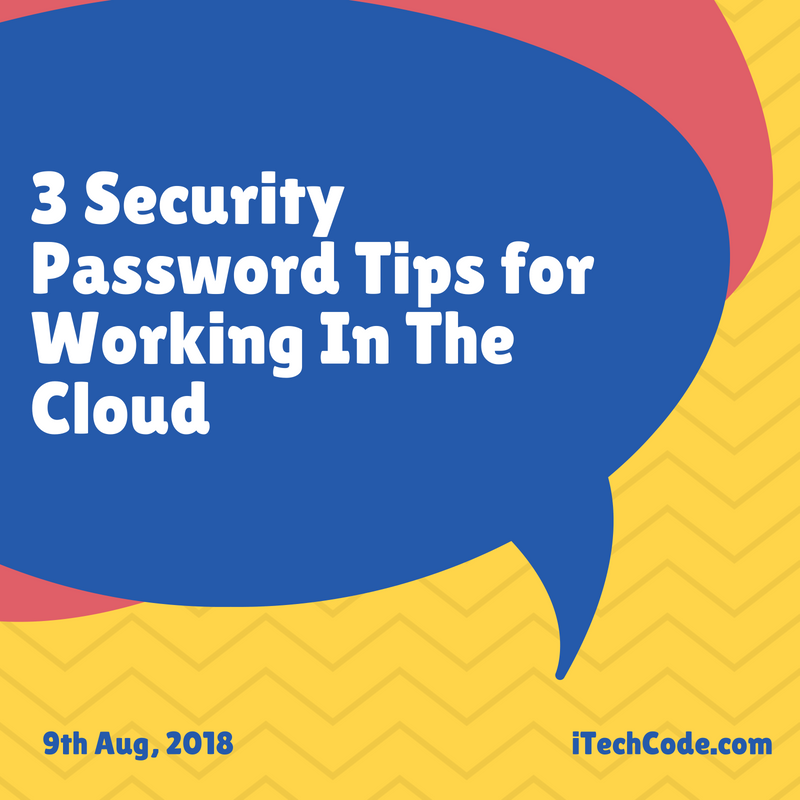By implementing best practices when creating and managing your cloud passwords, you’ll increase security and keep your data.
From streamlining how you share files with co-workers—especially if you have remote employees—to invoicing, record-keeping, and team management when it comes to running a small business, cloud-based services are a blessing.

But that blessing comes with an issue that cannot be ignored: security in the cloud.
Each cloud-based system typically requires a unique password from each user. And that can mean dozens of online usernames and passwords of increasing complexity that you have to remember. And we haven’t even touched on personal passwords. We’re swimming in login information.
And if your small business uses, stores, or exchanges data over the cloud, weak passwords can be a genuine security vulnerability; almost 80% according to Verizon’s 2017 Data Breach Investigations Summary.
And while it’s always a good idea to check with your IT professional about security best practices when it comes to keeping your data safe, there are some generally accepted approaches your IT department will thank you for considering:
Stay Up To Date With Guidance Recommendations
You’ve probably heard that the best way to keep data safe when using cloud-based software for your business is to create complex passwords that contain multiple letters, numbers, and special characters like @, %, $, and #. (I know, I should watch my language).
With the move from mainly on-premise software like Quickbooks 2019 to primarily cloud-based software, it’s more important than ever to know the best practices for keeping your data secure.
But there are new guidance recommendations on the horizon. In August of last year, the the U.S. Department of Commerce’s National Institute of Standards and Technology (NIST) issued new security guidance for using cloud-based software stating that while long string, complex, multi-special-character passwords are often a challenge for users to remember, the automated systems most often used by hackers would likely have little trouble figuring it out. The result, NSIT is deemphasizing special-characters and frequent changing of passwords instead recommending users create long-form “random phrase” passwords for increased security.
Company Password Policy
Taking the time to craft a clear, concise, easily implemented password policy can increase security when using cloud-based software for your small business.
To ensure maximum rollout, emphasize your new company password policy at all meetings and in further communications. Other good ideas to help everyone get on board with the new password protocol is to send out frequent email reminders to staff or paste reminders on Facebook or online meeting places. Have a brick and mortar office? Lunchrooms provide an ideal environment to put up a friendly reminder poster.
Write It Down But Keep it Out Of Sight
With the ever-increasing complexity of passwords, it’s little wonder many of us choose to jot the more tricky ones down on a slip of paper. And while writing them down is secure, where you store that piece of paper can lead to trouble. Avoid keeping a sensitive password on sticky-notes in the most common workplace locations: under the keyboard, mouse pad, or phone, on the computer monitor itself, in the top drawer of your desk, or stuck to the underside of the desk. Consider keeping the passwords in your wallet – you are already accustomed to keeping that secure.
Cloud-based software and services can be great tools for your company but, security should always be on your radar. Prevent your small business from becoming an easy target by taking the step necessary today to ensure passwords are as secure as possible.
Author: Jaren Nichols :
Jaren Nichols is Chief Operating Officer at ZipBooks, online accounting software for small businesses. Jaren was previously a Product Manager at Google and holds an MBA from Harvard Business School.
You can also stay updated by subscribing to iTechCode.